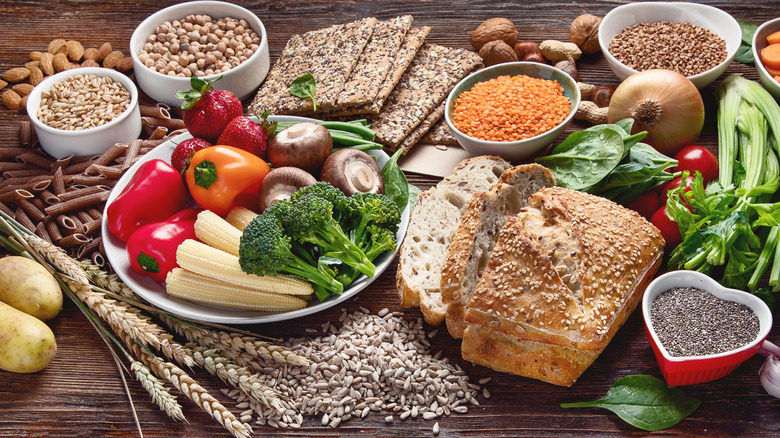The Diet Women Over 50 Should Try To Reduce Risk Of Heart Disease
Heart disease is the number one cause of death for women in the U.S., yet more than half of the women in the country are not aware of this fact, according to the Centers for Disease Control and Prevention. Symptoms of heart disease include chest pain, pain in the jaw or neck, nausea, and fatigue. However, some women don't experience any symptoms at all. Coronary artery disease and heart attack are two of the most serious types of heart disease, and being proactive with your health can make a difference.
Women can lessen their risk of developing cardiovascular diseases by maintaining healthy blood pressure and weight, keeping cholesterol levels down, not smoking or drinking, and managing stress. However, one of the most important choices women can make involves their diet. In fact, a 2021 study published in the Journal of the American Heart Association showed that postmenopausal women who followed what is referred to as the "Portfolio Diet" reduced their risk of developing heart diseases. The study followed 123,330 women over the age of 50 from 1993 to 2017 and found that 11% were less likely to develop any heart diseases, 14% had a lower risk of developing coronary heart disease, and 17% were less likely to develop heart failure.
The 'Portfolio Diet' is plant-based
If you're looking to alter your diet to reduce your risk of heart disease, you may want to give the "Portfolio Diet" a try. Developed by Dr. David Jenkins to help people lower cholesterol levels and improve heart health, the eating plan is basically a plant-based diet grouped with foods that help lower cholesterol. One important change is replacing meat and dairy with plant-based, soy alternatives, like soy burgers and soy milk. In addition, you need to substitute butter with margarine that is fortified with plant sterols, per Healthline.
The diet also includes three servings of tree nuts (almonds, walnuts, or pistachios) per day, as well as three servings of psyllium fiber per day, according to WebMD. You should also include fruits, vegetables, whole grains, legumes, and healthy fats. Foods to limit (or avoid, if possible) include processed and refined foods and carbs, and food and drinks that contain sugar, per Healthline.


